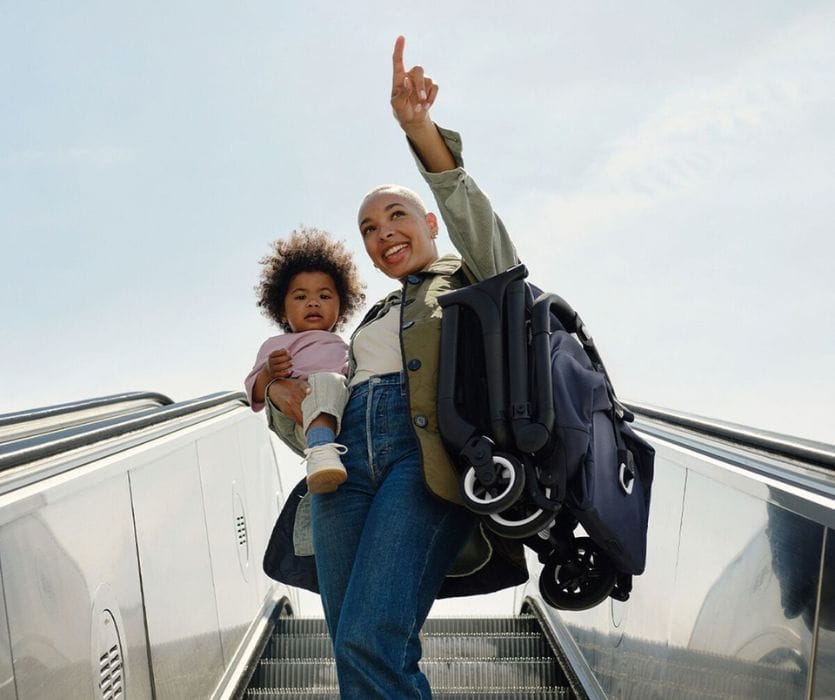Let's be honest – starting daycare is a rollercoaster for both you and your child. While you're mentally preparing for separation anxiety and schedule adjustments, you also get the added treat of the seemingly endless parade of illnesses that come with daycare territory.
When our son started daycare, I thought I was prepared. I wasn't. Three months in, we'd already made five mid-day pickups, endured countless sleepless nights with a congested toddler, and had become first-name-basis regulars at our pediatrician's office. (I didn't appreciate how quickly I needed to familiarize myself with hand foot and mouth disease - way to name something, medical people.)
If this sounds familiar (or sounds like what you're worried about), you're in the right place.
Daycare and Illness
Infants and toddlers in daycare typically catch 10-12 colds per year, but this number drops significantly as children grow older. (Older children and adults usually experience only about 4 colds annually.) Winter months are particularly brutal, with RSV, flu, and other respiratory illnesses making their rounds through daycares.
Between juggling work commitments, managing sick days, and the emotional toll of seeing your child unwell, it can feel overwhelming. Nothing like using up all your sick days by mid-February for daycare illnesses.
Building Your Family's "Sick Kit"
One thing that has saved my sanity during daycare sick seasons is having a dedicated "sick kit" ready to go. I was forever digging around for lozenges that I could have sworn I'd bought the last time my kids were sick, and having them in a bin or caddy was incredibly helpful.
Here are some ideas of what you could pack in one.
1. Find the Right Container
Start with a dedicated container – a plastic tub with a lid or a large basket works well. You want something easily accessible but that can be stored out of reach of curious little hands. I like a caddy but I've also seen other parents use a bucket that can double as a barf bin (I don't know how I feel about that, but you do with that information as you see fit.)
2. Symptom Management Essentials
- Thermometer (I preferred a digital one but work with whatever you have)
- Fever Bugz stickers (makes overnight check ins less disruptive)
- Electrolyte mix packets (for keeping hydration up)
- Tissues (I like springing for the soft kind with lotion when you're dealing with endless nose wiping - especially pre-nose blowing years.)
- Sniffer Soothers if you're dealing with extra gummy noses
- Tylenol and Advil - I used to add this to my kit when it was in use, but stored it somewhere else in the 'off season' because I found I used pain relievers at non-sick times, and I liked to keep all medicines securely in one spot.
4. Respiratory Support
- Navage Baby Nasal Aspirator (gentler than bulb syringes for congested noses)
- Navage Micro Mist (for stubborn congestion)
- Zarbee's chest rub (skip anything that uses camphor, like Vick's, for kids under two. You can read more about why here.)
- NATPAT easy breathe stickers (Personally, I wish these had a stronger smell but I know people who swear by them.)
- Saline Drops (especially for hard core congestion)
- Humidifier (keeps air moist to ease breathing – I kept it beside my 'sick kit' caddy in the linen closet)
5. Throat and Digestive Comfort
- Beekeepers Throat Spray for kids over one. (read more about honey under 1 concerns here)
- Beekeepers Sore Throat Lollipops 3+ (I preferred them over lozenges because they can hold them)
- Mamabear Nausea Lollipops (helps with queasy tummies) 3+
- Fridababy Push Pop feeder for frozen fruit or ice cubes
2. Comfort and Care Items
- Nightlight (gentle enough for midnight check-ins without disrupting sleep)
- Comfort toy (designated for sick days only makes it special. This little weighted puppy from My Little Buddy is sweet and has that 'substantial' feeling. Plus, you can heat it up.)
- Bath oil (for soothing pre-bedtime baths)
- Magic Bag kids compress (can be used hot or cold - it's good for head bonks too)
6. Cleaning and Containment Supplies
If you're building a bin vs. a caddy, I've seen some parents add these items as well.
- Trash bags (good for barfs, clean ups or even as a lining under a fitted sheet.)
- Carpet cleaner (for those middle-of-the-night stomach bugs)
- Lysol wipes (for quick disinfecting of doorknobs, light switches, etc.)
- Waterproof bed pads (for protecting mattresses)
- Hazmat suit for when they cough into your eyeball (just kidding...sort of)
7. Quick-Reference Info Sheet
Include a sheet with this info or put it in a Notes file on your phone.
- Your pediatrician's phone number and after-hours contact
- Nearest urgent care location and hours
- Basic dosing guidelines for medications (based on current weight)
- Insurance information
Hygiene Practices That Make a Difference
Here are some suggestions I found that would definitely help but vary in feasibility depending how old and/or stubborn your child is.
- Hand washing routines: Make it a habit to wash hands immediately upon returning home from daycare
- Label everything: This reduces the chance of your child using another child's cup or utensils
- Daycare clothes off at the door: Have dedicated "daycare clothes" that get changed as soon as you're home
- Teach proper coughing/sneezing: Daycares are pretty good about teaching even young toddlers to cough into their elbow, so it's a good habit to have at home as well
Creating Your Sick Day Backup Plan
Even with the best preparation, you'll still face sick days. Having a solid backup plan makes these disruptions more manageable:
- Identify your backup care network: Grandparents, trusted neighbors, or retired friends who might be available on short notice
- Discuss flexible work options: Before illness strikes, talk with your employer about work-from-home possibilities during child illness
- Connect with other daycare parents: Sometimes forming a small "illness co-op" with families you trust can help spread the burden
Self-Care Through the Storm
I know this is easier said than done, but you are caring for an outbreak monkey at the moment, so now is not the time to be a martyr. You should take care of your health, too.
- Sleep when possible: When your child naps during illness, try to rest yourself.
- Accept help: When friends offer to drop off meals or supplies, say yes.
- Adjust expectations: Your house will be messier, your work might fall behind, and that's completely normal during this chaos.
Trust Your Instincts
One final but crucial point: while daycare illnesses are common and usually minor, always trust your instincts. You know your child best. If something seems off, even if symptoms seem "typical," don't hesitate to contact your healthcare provider.
To Sum Up Prepping for Daycare Illness
Remember that you're not alone in this journey. Every parent dropping off at daycare is facing or has faced these same challenges and has or will receive the dreaded "hey, we've had a bit of an incident today" phone call.
I might be a rash, a barf, a fever or a biting incident but it's the wild lottery we all play as parents, so try to take it in stride as you navigate the petri dish of childhood.
The only certainty is that you will come down with the same sickness just as your child recovers, feeling right as rain and full of energy.
Also, check out: Packing Baby for Daycare (Free Printable Checklist)




Leave a Comment